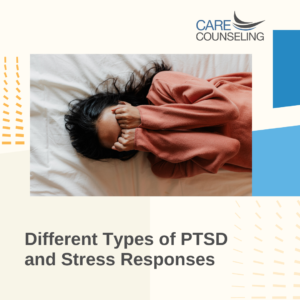 Immediately after a highly stressful or traumatic event, your body automatically responds as part of the stress response cycle. When your brain signals that danger is present, the amygdala “sounds the alarm” to the hypothalamus which functions as the “command center” and activates the sympathetic nervous system. When adrenaline is released into the bloodstream, physiological changes occur.
Immediately after a highly stressful or traumatic event, your body automatically responds as part of the stress response cycle. When your brain signals that danger is present, the amygdala “sounds the alarm” to the hypothalamus which functions as the “command center” and activates the sympathetic nervous system. When adrenaline is released into the bloodstream, physiological changes occur.
Imagine that you are being chased by a bear and your body is gearing into a fight, flight, or freeze response. When the threat has passed and your body no longer feels like it is in danger, you begin to regulate.
Not everyone who experiences a traumatic event will develop PTSD. Most people will develop a normal stress response; however, some people feel as though they continue to experience trauma within their bodies. Some people may experience difficulties adjusting in response to stressors or may experience several post-traumatic stress symptoms but not enough to meet the full criteria for a specific trauma-related diagnosis.
The American Psychiatric Association (ASA) defines Posttraumatic Stress Disorder (PTSD) as “a psychiatric disorder that may occur in people who have experienced or witnessed a traumatic event, series of events, or set of circumstances.” The lifetime prevalence of PTSD is 6.8% according to the DSM-5-TR.
Those impacted by PTSD continue to re-experience symptoms that are intrusive and disturbing such as intense and involuntary memories, dreams, and flashbacks. They may avoid people, places, or other reminders of the trauma and avoid talking about their thoughts, feelings, and experiences after the trauma. There are changes in one’s cognitions such as how one views the world and others. Trust can be especially difficult in the aftermath of trauma. There are changes in mood. Shame, guilt, fear, anxiety, numbness, and apathy are common. In addition, there are arousal and reactive symptoms such as irritation, angry outbursts, reckless or self-destructive behavior, being on edge and hyperalert, difficulties concentrating, and trouble sleeping. Dissociative symptoms may be present.
Acute Stress Disorder is a posttraumatic stress response that develops 3 days to one month following exposure to trauma such as physical or sexual violence. This varies from Posttraumatic Stress Disorder (PTSD) which requires symptoms to be present for more than a month. The specifiers acute and chronic may be used to describe the lengths of symptoms. PTSD is considered acute when symptoms last up to 3 months and 3+ months is considered chronic.
Some individuals may have a delayed onset, meaning that the full criteria are not met until 6 months or even years after (some symptoms may be immediately present). This is a specifier that is considered part of PTSD.
Another specifier is dissociative symptoms which is sometimes referred to as Dissociative PTSD. This includes feelings of detachment from one’s body as in depersonalization and experiences of unreality in one’s surroundings as in derealization.
Complex PTSD (C-PTSD) is not a current diagnosis in the DSM-5-TR but has been suggested as a new diagnosis to capture the complex behavioral, emotional, cognitive, interpersonal, and somatic symptoms seen in individuals who have experienced often multiple, repeated traumas throughout their lifetime.
Finally, those with PTSD are more likely than those without a PTSD diagnosis to also be diagnosed with another mental health disorder such as anxiety, depression, bipolar disorder, or a substance use disorder. According to the International Society for Traumatic Stress Studies (ISTSS), the lifetime rate of having a co-occurring disorder with PTSD is 80%. Comorbid PTSD is basically having PTSD and one (or more) additional diagnoses that are co-occurring.
If you have any questions about PTSD and stress responses, please feel free to talk to your therapist.
Written By: Charlotte Johnson, MA, LPCC
We’re Here to help
Our wellness experts will be happy to take care of you. You can CLICK HERE to schedule an appointment now or call (612)223-8898.
Meet Clinicians
We’re united by our commitment to providing effective, relevant, and innovative mental health support at all stages of your journey. Click Here to find a therapist or find out more about who we are, where we come from, and how we live out CARE’s mission every day.
The professionals at CARE are actively collecting and creating resources to help with what you need and address frequently asked questions. We’re Here for You.



